 |
| A piece of Japan in the heart of Bloomsbury. |
Having only recently discovered that there was a Japanese Roof Garden, on top of the Brunei Gallery, I decided that I should pay it a visit.
The SOAS Brunei Gallery is situated in the heart of the University of London, Bloomsbury, but is fairly easy to locate.
Avoiding the throng of students, who were making their way to classes in the myriad buildings that make up the campus, I headed along a path through the centre of the University, until I reached the Brunei Gallery SOAS.
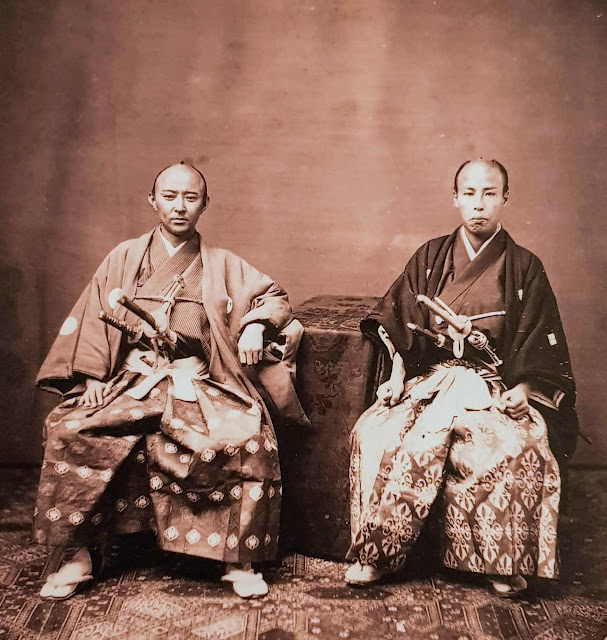 |
| Japanese Officials, Nagasaki, circa 1862. |
After climbing the few steps at the entrance of the gallery I found myself in a large foyer, where a security guard gave me a perfunctory glance, before I made my way through another set of doors and into the gallery itself.
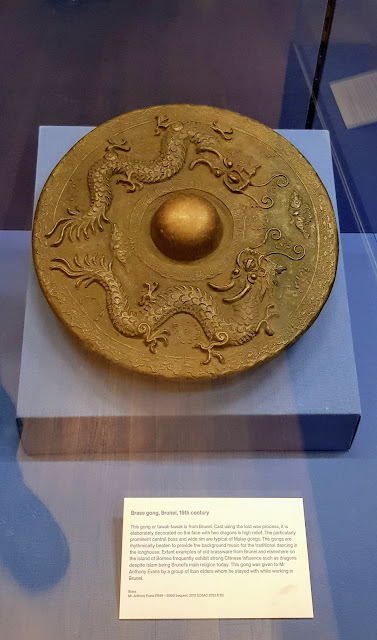 |
| Brass Gong, Brunei, 19th century. |
The gallery has different exhibitions, throughout the year, and the current exhibitions are called 'Extraordinary Endeavours', which celebrates the bicentenary of the Society's involvement in the study of science, literature, religion and arts of Asia, since 1823., and 'Discovering the Artwork and Object Collection', allowing you to discover highlights from the Gallery's own collection.
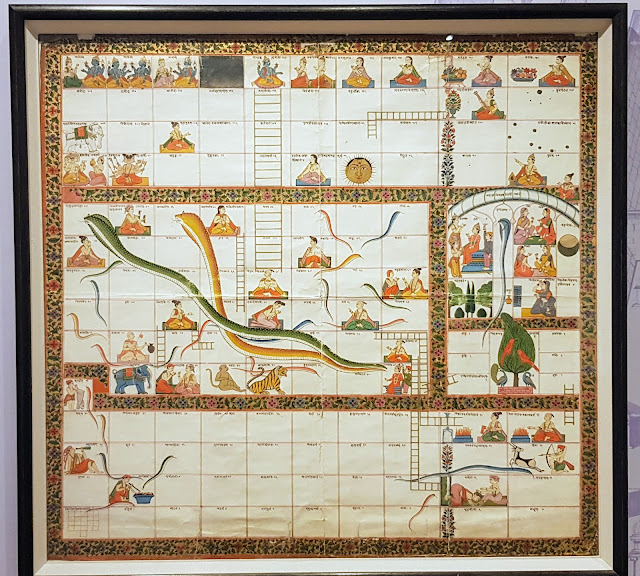 |
| Snakes and Ladders gouache on paper mounted on cloth, circa 1800. |
There were pencil drawings, ink drawings, paintings, tapestries, photographs, books, manuscripts, weapons, religious artefacts and so much more, to see, spread across two floors.
 |
| Tibetan Thangka, 18th-19th century. |
For a small gallery there was a lot to see and, as it was still morning, there was no one else there, allowing for a thorough exploration.
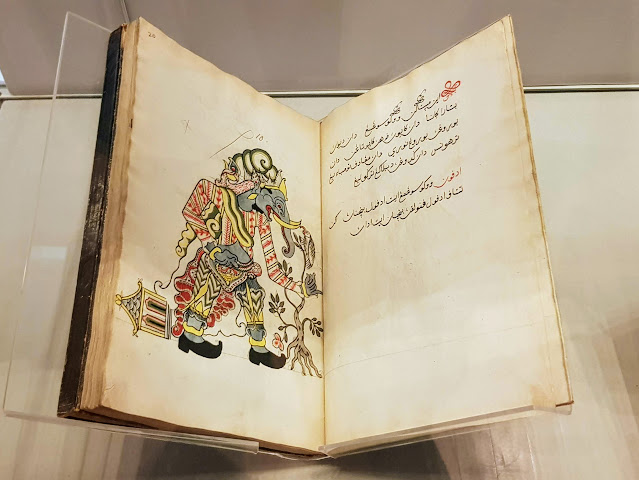 |
| Wukong Java, 1811-1816. |
Having meandered my way through across both floors I made my way to the roof, to see the Japanese Roof Garden.
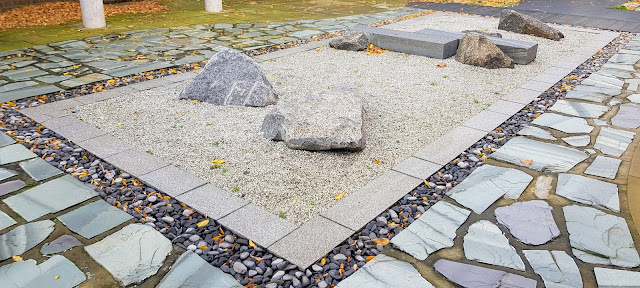 |
| Rock Islands in a Sea of Gravel. |
The garden itself is small but, considering where it is situated, a perfect place to relax. Rocks and planks are set in a gravel sea, bordered in a rectangle shape. Towards the south of the garden is a raised platform beneath an open canopy, while to the north is an obelisk, set among squares of alternating pebbles and moss.
.jpg) |
| Obelisk. |
To the side are wooden benches, beneath climbing vines, that allow for quiet contemplation, high above the campus below.
Suitably relaxed I made way out of the garden, down the stairs and exited the gallery, ready to continue my walk.
Brief History
The Brunei Gallery at the School of Oriental and African Studies opened in 1996.
 |
| Painted mica overlays, India, 18th century. |
Since that time it has hosted over 200 exhibitions and projects by prominent artists, researchers, and academics with the aim to present and promote cultures from these regions while being a student resource and public facility.
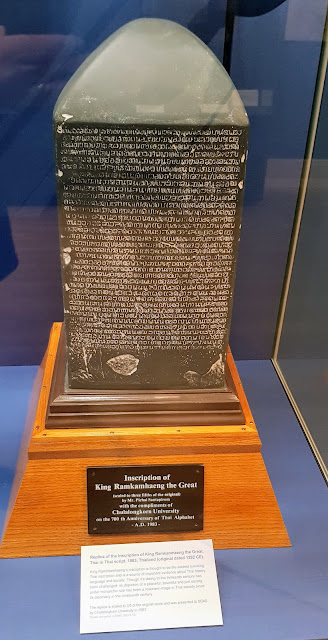 |
| Replica. |
Acting as a bridge between ongoing innovative research taking part at S.O.A.S. and external audiences, the gallery champions ongoing work and research within the regions, something unique in the London art scene.
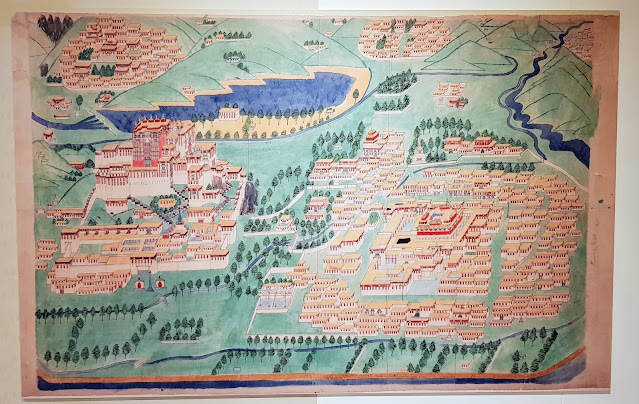 |
| Lhasa, unknown Tibetan artist, painting on paper, circa 1889. |
In 2007 a collection of artwork was formalised into the S.O.A.S. Object and Artwork Collection, which is stored and cared for by the Brunei Gallery and open for public view and research.
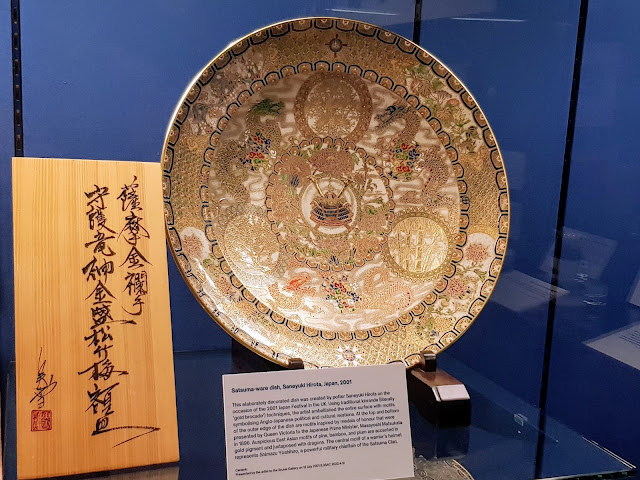 |
| Satsuma-ware dish, Japan. |
With its focus on contemporary art, the collection of over 500 artwork and objects is steadily growing, ensuring future generations can enjoy the wonderful work held in the collection.
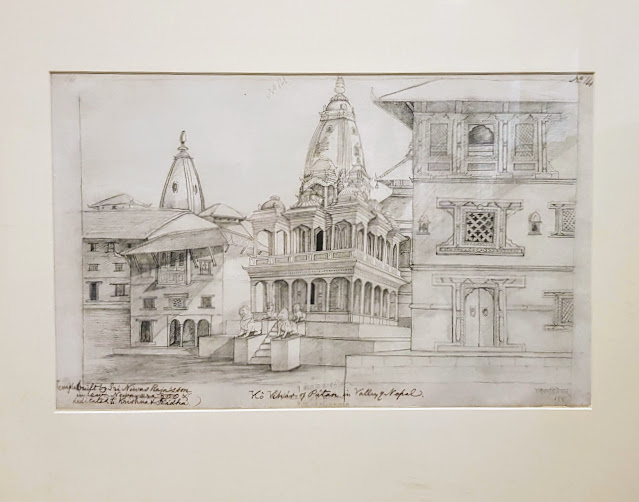 |
| The Temple of Krishna and Radha, Patan, by Raj Man Singh. |
Promoting cultures from these regions and acting as a source of research for the public and students at S.O.A.S., University of London alike, is core to our values. As well as increasing access and reducing barriers for anyone wishing to use the collection is essential to our aim objectives at the Brunei Gallery.
To see some more photographs from my visit, click the link below.
For more information, click the link below.
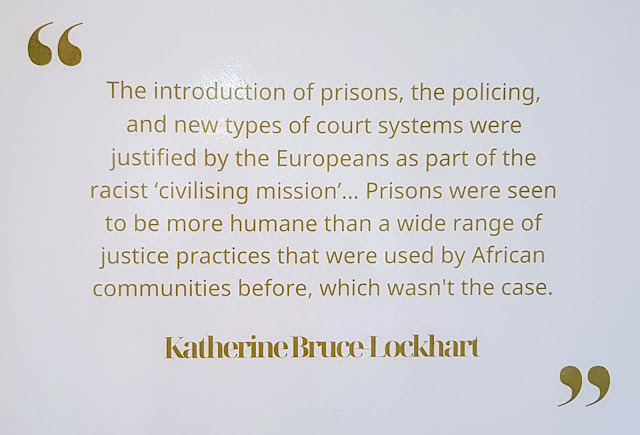
No comments:
Post a Comment